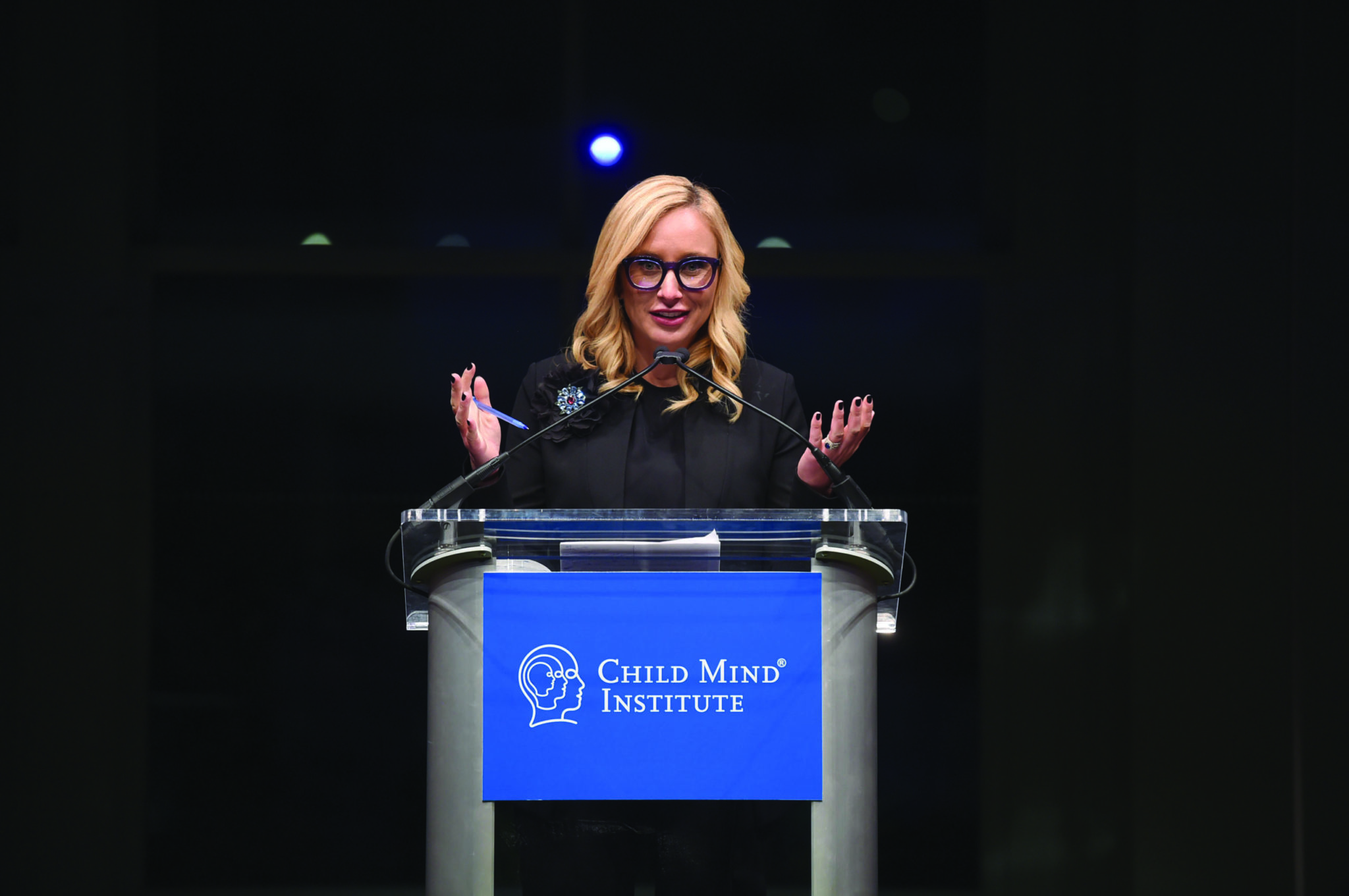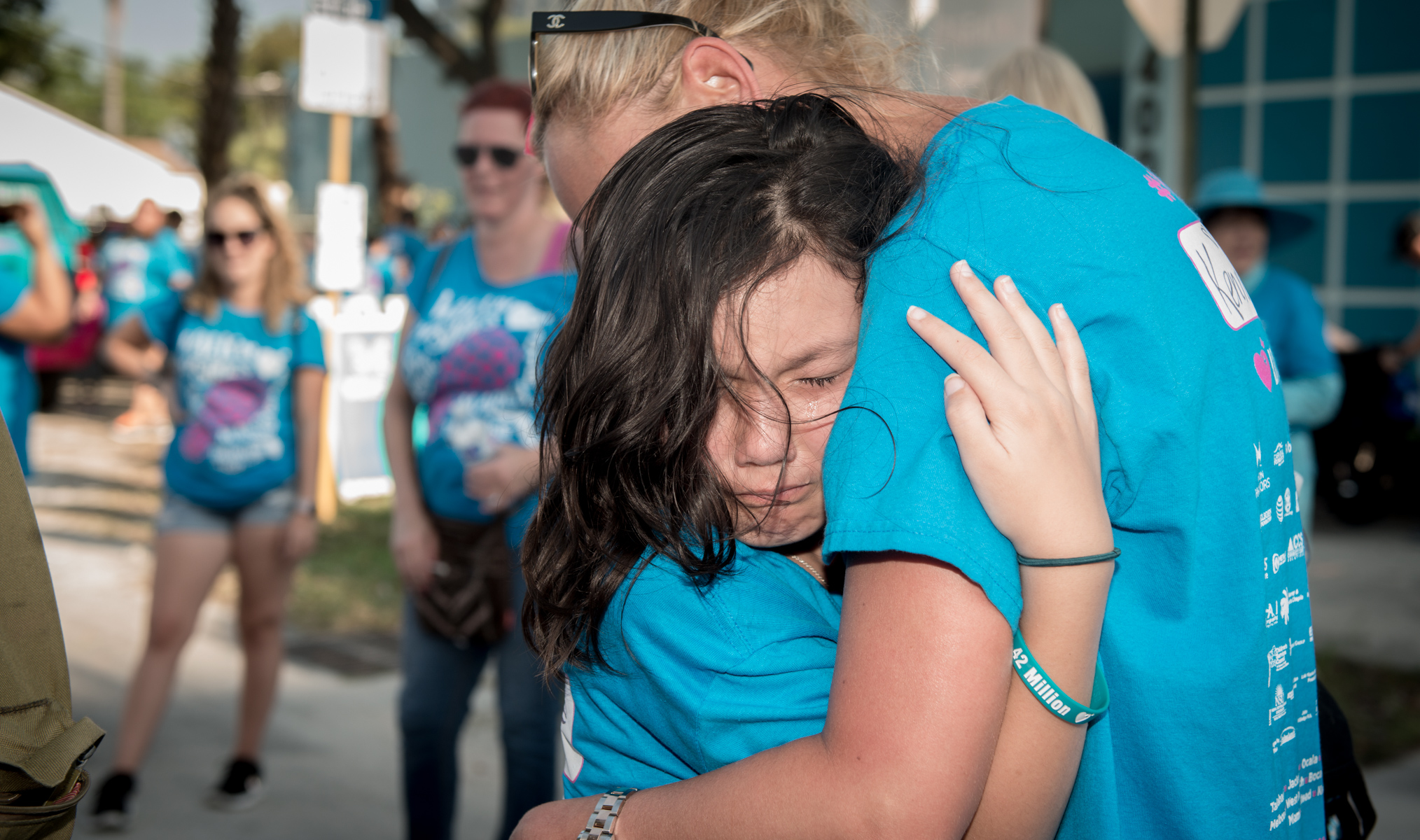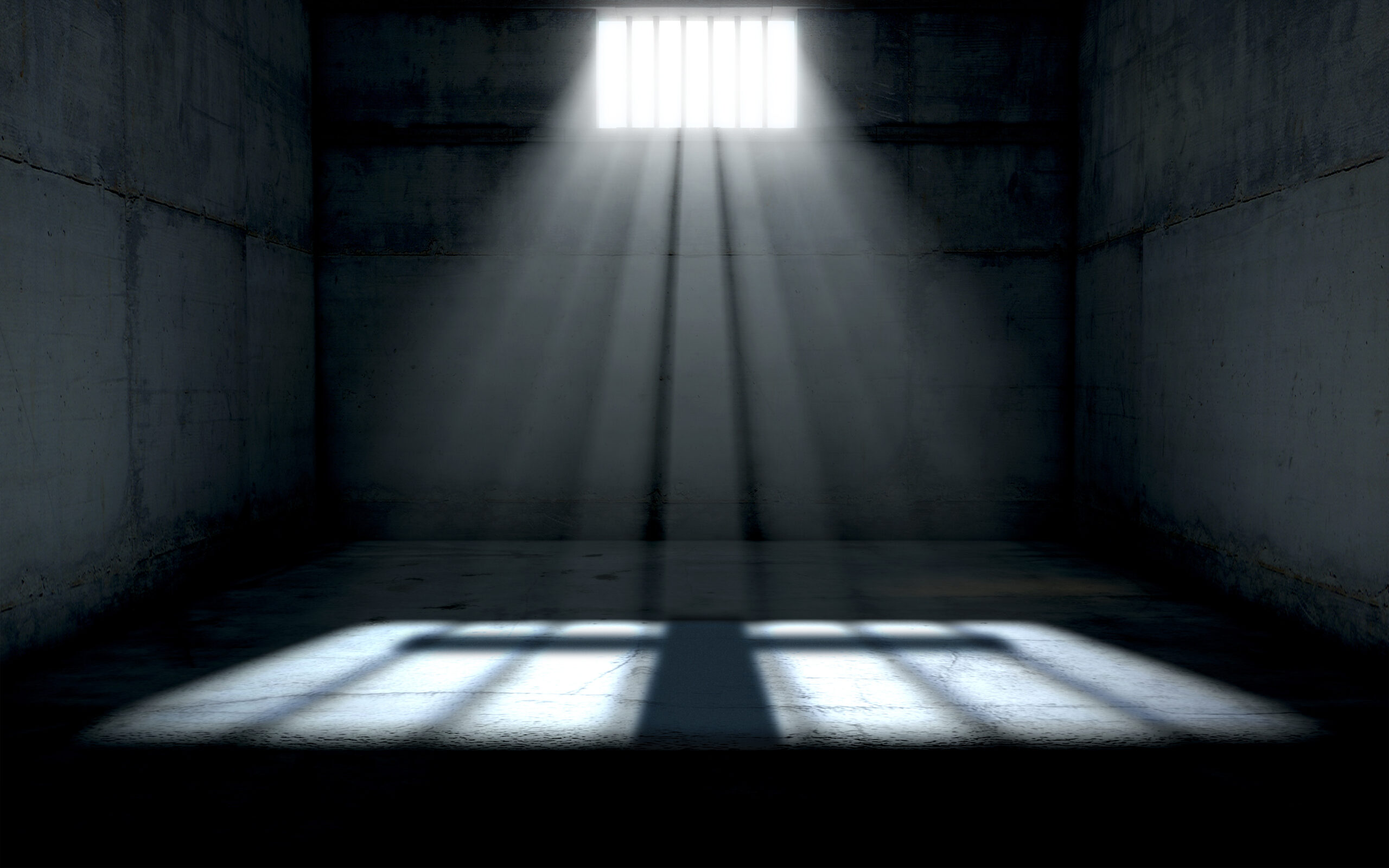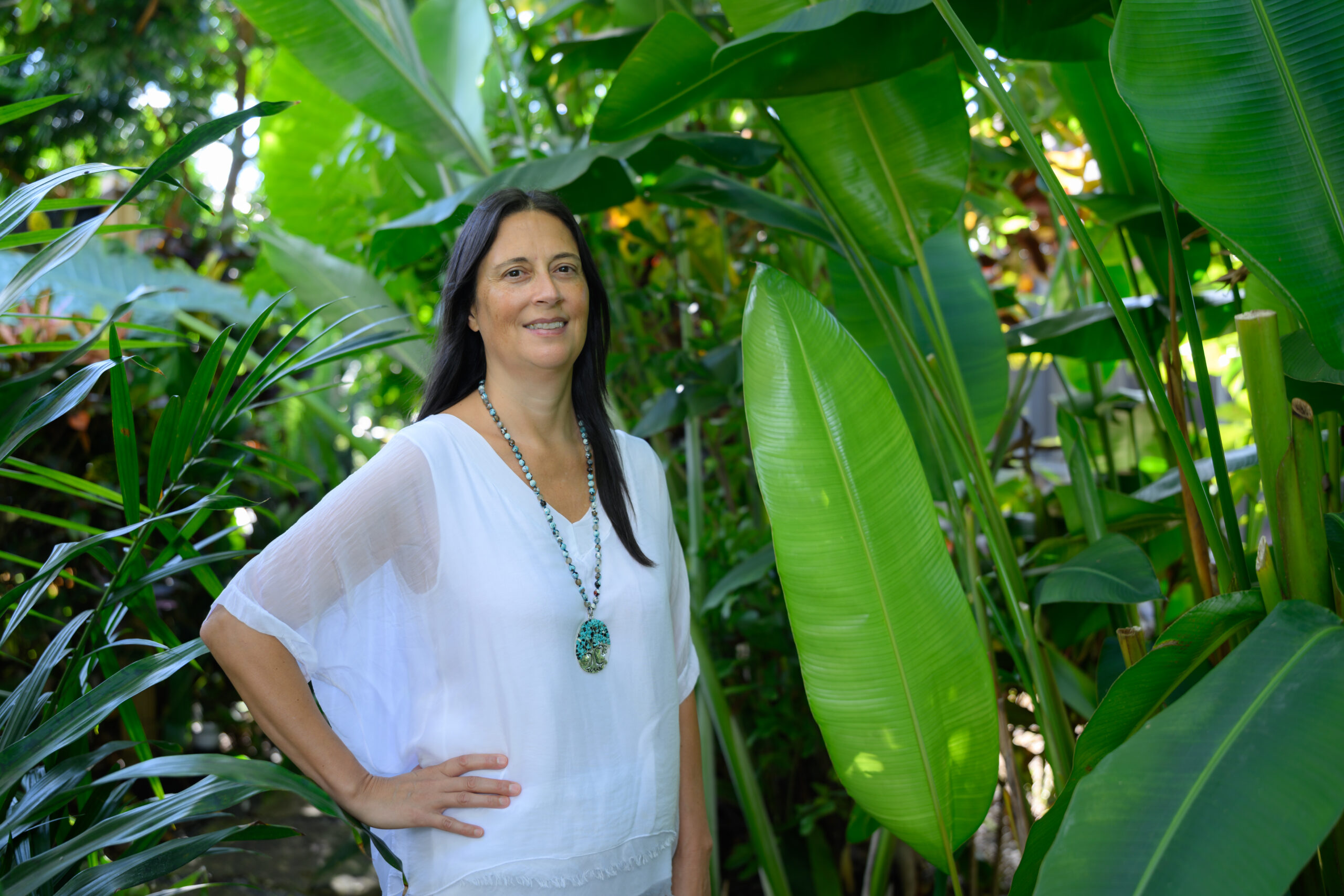When asked how the conversation around child sexual abuse has changed in the 13 years since she launched a nonprofit organization devoted to supporting survivors and protecting youth from predators, Lauren Book notes that, for the first time, she sees people leaning into the discomfort of the topic.
It’s an apt turn of phrase coming from the founder of Lauren’s Kids, an organization with offices in Aventura and Tallahassee that has leaned hard enough into the discomfort to raise awareness on the national level—and effect significant legislative change here in Florida. It’s also a phrase that speaks to the turn that Book’s life took after suffering six years of sexual and physical abuse, starting at age 11, at the hands of her nanny (who’s still serving a 25-year prison sentence).
For more than half of her adult life, the Plantation resident has advocated on behalf of the more than 42 million survivors of child sexual abuse in the United States, elevating the discourse along the way with her trademark candor, fierce commitment and soulful empathy. As part of its ongoing prevention efforts, Lauren’s Kids (laurenskids.org) continues to bring game-changing educational material to some three-quarters of the 50 states through a “Safer, Smarter Schools” curriculum developed for students from pre-kindergarten through 12th grade. On the awareness front, what used to be 1,500-mile trek from Key West to Tallahassee, is now a 42-hour “Walk in My Shoes” event in the rotunda of the Florida Capitol that honors survivors.
The backdrop speaks to Book’s current role as state senator for the 32nd district (which includes Weston, Plantation and Southwest Ranches), a seat for which she ran unopposed in 2016. Though she was conscious early on of being identified as someone with a single agenda, Book says she’s more comfortable now in her legislative skin. Over the past 18 months alone, she’s authored Senate bills, signed into law, connected to human trafficking and pedophiles (see sidebar).
“I think I’m at that sweet spot in my time [in Tallahassee],” says the 36-year-old mother of 3-year-old twins with husband Blair Byrnes. “I try to take on more of the complex issues where we can create lasting change. … But, we still have a long way to go. This is an issue, unfortunately, that continues to grow.”
Book spoke to that sentiment, and several other issues, during an interview with Lifestyle.
According to the Centers for Disease Control and Prevention, 1 in 4 girls and 1 in 13 boys will experience sexual abuse at some point in their childhood. Based on those numbers alone, why doesn’t this discussion command more of our attention?
The statistics that you’re citing are interesting. We quote 1 in 3 girls, and 1 in 5 boys will experience some form of sexual abuse before their 18th birthday. If we’re walking down the street and there’s smoke coming out of a house window, we’re [automatically] calling the fire department. Child sexual abuse isn’t like that. We know that children don’t necessarily disclose abuse—so there are many more cases that go unreported.
This is a monumentally pervasive issue, and it’s one that’s shrouded in shame and fear. One of the things that helped [Lauren’s Kids] get to where we are … is educating around that. We know that 90% of that abuse of children under 18 will happen at the hands of someone the child knows, loves and trusts. We also know that 95% of sexual abuse is preventable with education and awareness.
We want to empower children to identify the behaviors that make them feel unsafe—and show them how to access help. We also want parents, caregivers and teachers to learn how to spot signs of abuse, how to detect red flags [in individuals who may be predators], and how to report it and get kids help. [The goal] is to have a continuum of reporting and child protection. But we’ll always have to be mindful of the way people think about childhood sexual abuse [in order to continue] breaking down the stigma.
One of the hallmarks of Lauren’s Kids has been the free resources it provides to schools, youth organizations and parents. Have you had situations where individuals and communities find the subject matter, even in the developmentally appropriate way it’s presented, too uncomfortable?
Of course. In one of the lessons in the curriculum, we talk about your private parts being covered by a bathing suit. And how we all have private parts, but no one is allowed to look at or touch your private parts. We also talk about your mouth being a private place on your body that nobody should be putting anything in, unless, for example, you’re at the dentist. When we talked about the mouth being a private part, that was very triggering to some of the school districts in Florida that are more conservative. They had a big problem with it, and they didn’t want those educational resources in their classrooms.
We’ve continued to chip away at that and have conversations. To say that district is off our list wouldn’t be safe for those kids. We know better now—so we can get better. We work hard every day to grow the network of schools and classrooms that are offered the curriculum so that children can be kept safe. At the end of the day, that’s what’s most important.
For anyone who sees an accomplished woman like yourself and thinks that the effects of childhood sexual abuse fade away when you become an adult, can you share some of the lingering tentacles of your experience, perhaps a trigger that exists to this day?
I appreciate your sensitivity in asking that question. There are all different aspects of survivorship and “thrivership,” and it’s a journey. To this day, there are moments that will trigger me. I’m a state senator, a mom, a daughter, a wife, a sister. All these different things. But when a trigger occurs, I’m still that 11-year-old scared little girl who’s being taken advantage of by an adult.
And it happened recently at the dentist. I can’t go to the dentist without being put under general anesthesia because of some of the things that the nanny did to me. I can’t have anything put in my mouth, or I’ll vomit violently. So, for me, the dentist is not an easy thing, and that’s just a piece of life that I deal with. I’m still going to counseling. And I still have flashbacks that can be triggered by something like people with particular mannerisms. They don’t occur as often as they used to, and the depth of the flashback isn’t as bad if I can manage with my coping skills.
We often find survivors who are doing great, and then their own children become the age that they were when they were abused. So, that can be a trigger. Those are very real things that we talk about because it’s important to normalize it. It’s difficult. But you’re a thriving survivor, and you can and will heal.
I’m reminded of some of the survivors that we’ve met along the way on the annual walk. We once met a 90-year-old woman who came out to walk the 20-plus miles for that particular day. She had never disclosed to her family that she had been abused. She was in her fifth marriage; there had been substance abuse and domestic violence in her past. If you never heal that old trauma, you’ll constantly replay those patterns. The survivor may think, “I’m fine, everything’s OK.” But they’re constantly putting themselves in vulnerable situations, relationships and dynamics. It’s so poignant to look across the span of [such] a lifetime.
You grew up in an affluent part of South Florida, which plays into a common misconception about child sexual abuse. What are some others?
The big reality is that it cuts across all socioeconomic backgrounds, all races, all religions. The greatest risk factor is just being a child.
The other thing that scares people is that we don’t want to believe we could know or have anything to do with a sex offender or predator. But we might. When you look at the statistics regarding how many times a [pedophile] will perpetuate sexual violence on children [in a lifetime], it’s something like 117 [according to the National Sex Offenders Registry; there also are an estimated 752,000 people listed on state sex offender registries across the country, as of last fall, according to SafeHome.org]. That’s a sobering reality.
The other misconception is the belief that you’ll have some sort of a detector when it comes to a sex offender. We do this activity with kids where we ask them to think about a stranger or somebody who might hurt them, and what they might look like. They always draw a tall man with messy clothes, messy hair, with a gun, a knife, a sword. But we know that [abusers] who ingratiate themselves into a child’s life often look like saviors. In the case of [former USA gymnastics team doctor and convicted rapist] Larry Nassar, parents oftentimes were in the room when he assaulted those young women. That’s the power of sex offender predators and what they can do.
Speaking of which, what does the Jeffrey Epstein story say about the confluence of power and wealth when it comes to predatory behavior involving underage children?
What happened involving Epstein was a despicable, awful look at humanity. It proves the point again that anyone can be [a sex offender]. And anytime someone like that has a tremendous amount of money, power, and access, it makes things more [dangerous].
Even today, if I talk to individuals about that issue, some people are stupid enough to say to me, “Well, the girls went back [to see Epstein].” That continues to show that, while we’ve come a long way, some people still have no depth of understanding when it comes to sexual predators. They’re insensitive to the imbalance of power, and what a predator can do with that power.
Epstein aside, all of the people who had knowledge or reason to believe that those young women were being taken advantage of and harmed … it makes me sick to my stomach. … That’s the upsetting part, that so many people enabled it for so long—[including those] who had a sworn duty to serve and protect the community and children. … It’s a disgusting, disgusting disgrace.
On the legislative front last year, Florida’s governor signed a bill, which you authored, that made it illegal to sell or own childlike sex dolls. Opponents of the bill argued that they’d rather see pedophiles have a sex doll than the real thing. What’s your reaction to such a claim?
Pedophilia is a sexual desire of young children; I know that makes people uncomfortable, but that’s the reality. They are hardwired to be turned on by young children. And it’s like the progressions in other addictions. Pedophilia starts with photos. And then that’s not good enough. So, it moves on to child pornography. Then, that’s not good enough. So, they have to move on to an actual child.
For anyone to suggest that this doll is going to be the thing that cures all pedophiles from acting out on children is just asinine.
Can you talk about the “Walk in My Shoes” event, held the past few years in the rotunda of the Florida Capitol, and what it’s meant to survivors?
First off, had I known what it was going to become, I probably would have done a “Segway in My Shoes,” not a walk.
We know that we can prevent childhood sexual abuse with education and awareness, and so much of what the walk is about is just that. But it’s also about letting survivors know that this did not define who they are. This is something that happened, but you can grow beyond it. And look what you can become. Anything is possible. You don’t have to fall victim to the re-victimization cycle.
We’ve had so many incredible opportunities to watch survivors heal. To watch young men and young women grow from the horrors that they endured, and blossom to become thriving survivors. They’re reclaiming a piece of their universe.
Featured image: Honoree Lauren Book speaks on stage during the Child Mind Institute’s 2019 Change Maker Awards at Carnegie Hall on May 01, 2019 in New York City. (Photo by Jamie McCarthy/Getty Images for Child Mind Institute)
Fighting for the state’s youth at the legislative level is nothing new for Lauren Book. Before being elected to the Florida Senate in 2016—and even before the launch of Lauren’s Kids in 2007—she and her father, lawyer-lobbyist Ron Book, were busy advocating for survivors of childhood sexual abuse. Here are just a few of the nearly 30 legislative victories that Book, her nonprofit and her father helped to push through.
2003: An HIV Testing Law promised a victim (or the victim’s family in cases involving minors) an HIV exam of the accused, with results available in a 48-hour window.
2010: This piece of legislation eliminated the statute of limitations for civil and criminal prosecutions related to sexual assault crimes committed against children under 16.
2014: The parental rights of individuals classified as sexual predators were terminated—and a red “P” was mandated to appear on the driver’s licenses of such predators.
2014: The “Protecting Florida’s Vulnerable” initiative included several elements, among them, mandatory sentencing of 50 years for those convicted of rape or torture of children, seniors and people with disabilities.
2019: State Senate Bill 540, authored by Book, a Democrat, helps to combat human trafficking on several fronts, including provisions for massage businesses and the hospitality industry; the creation of a soliciting-for-prostitution public database; and funding for support services for trafficking survivors.
2019: State Senate Bill 160, also sponsored by Book, outlawed the sale or possession of sex dolls that resemble children. The ban is now part of a national bill under consideration, the CREEPER Act 2.0.
















